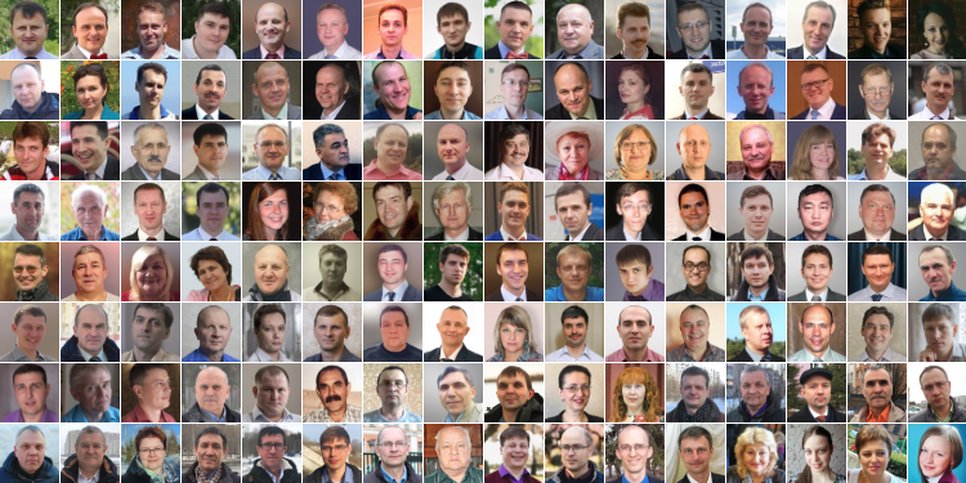The number of Jehovah's Witnesses under criminal prosecution has reached 200
MoscowAs of May 24, 2019, 43 women and 157 men across Russia are facing criminal prosecution in connection with the ban imposed on Jehovah's Witnesses organizations in 2017. Exactly half of the victims - 100 people - were sent to Russian prisons. There are 132 people in the status of "accused", 64 people as "suspect", 3 people as "defendant" and 1 person as "convicted" (sentenced to 6 years in prison). The following are the main facts and figures.
Age. 34 people are over 60 years old, 8 people are over 70. The youngest of those who suffer for their faith is 19, the oldest is 85. Many have adult or minor children.
Activities. All victims of criminal prosecution are ordinary working people, pensioners, entrepreneurs. Some work as drivers, builders, welders, among them there is at least one agronomist, hydrologist, miner, BelAZ driver, mining excavator driver, railroad worker, stove bricklayer, design engineer, poster artist, portrait photographer, system administrator, deputy general director of an energy company, systems engineer in a hospital, translator from Chinese and many others.
Chosen measure of restraint. 32 people are being held in prisons (the remaining 68 preventive measures have been mitigated), 25 people are under house arrest, 14 people are under a ban on certain actions, 74 people have been recognized not to leave, 4 people have given an obligation to appear. 2 people were taken into custody in absentia and are wanted.
Geography of persecution for faith. Criminal cases for faith have been initiated in 38 regions of Russia, namely: Amur, Arkhangelsk, Belgorod, Volgograd, Ivanovo, Kemerovo, Kirov, Kostroma, Magadan, Murmansk, Novosibirsk, Omsk, Orenburg, Orel, Penza, Penza, Pskov, Rostov, Saratov, Sakhalin, Sverdlovsk, Smolensk, Tomsk, Ulyanovsk regions; Kamchatka, Krasnoyarsk, Perm, Primorsky, Stavropol, Khabarovsk Territories; the republics of Kabardino-Balkaria, Bashkortostan, Crimea, Mordovia, Sakha (Yakutia), Tatarstan, Khakassia; Jewish Autonomous Region and Khanty-Mansi Autonomous Okrug.
Who is not included in the statistics? This list does not include those who have been searched, who have been and are being monitored, who have eavesdropping or spying devices in their homes, but have not been charged. For 2 years, more than 430 searches have been carried out in the homes of believers in Russia. A search turns an innocent person's life into a nightmare, undermines his health, causes deep emotional trauma and casts a shadow on his reputation in the eyes of neighbors, employers and others. How people feel when they are raided and their loved ones are imprisoned is described in the videos "Ruthless Searches and Arrests of Believers in Kirov", "Arrests of Believers Throughout Russia" and "Dzhankoy After the Raid: How Persecution Cripples the Lives of Believers".
The two hundredth was Alexander Parkov, arrested for his faith during a special operation on May 22, 2019 in Rostov-on-Don.
Law enforcement officers inappropriately call the religion of citizens participation in the activities of an extremist organization. Prominent public figures of Russia, the Human Rights Council under the President of the Russian Federation, the President of the Russian Federation, as well as international organizations - the foreign policy service of the European Union, observers of the Parliamentary Assembly of the Council of Europe, the Office of the UN High Commissioner for Human Rights - drew attention to this problem . Jehovah's Witnesses have nothing to do with extremism and insist on their complete innocence. The Russian government has repeatedly stated that the decisions of the Russian courts on the liquidation and prohibition of organizations of Jehovah's Witnesses "do not assess the doctrine of Jehovah's Witnesses, do not contain a restriction or prohibition to practice the above teachings individually."
The actions of law enforcement agencies create all the prerequisites for the list of those persecuted for their faith to be replenished. Information about most of them can be found in the "Prisoners of Conscience" section of the Jehovah's Witnesses in Russia website.
